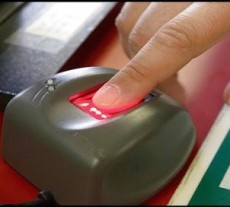The Electoral Commission of Ghana (EC) is warning seriously against double registration when it embarks on a limited voter registration exercise in June, 2014.
Voters, who have their names already on the biometric register used for the 2012 presidential and parliamentary elections, will be committing an offence if they engaged in registration again.
Hajia Sa-Adatu Maida, the EC Commissioner in charge of the Upper West Region, disclosed this during a consultative forum on the Public Elections Regulations (C.I. 75) in Wa on Tuesday. She said a person who committed such an offence could go to prison for up to two years.
According to her people can always change their names and their looks but that they cannot change their biometric information, hence, her advice to persons with such double registration intentions to discard it and avoid the two-year prison term since the EC has the capacity to identify them.
Themed Deepening Public Confidence in Ghana's Elections, the limited registration exercise is aimed at bringing onto the voters register two categories of Ghanaians to enable them participate in this year's District Level Elections (DLE) and subsequent ones.
These two categories of Ghanaians include persons who have turned 18 years since the last registration in 2012 and persons who are older, but could not register because of various genuine reasons.
The EC Commissioner in charge of Upper West Region outlined various reasons including change of location, marital status, dislike for photograph on ID and criminal intentions such as multiple voting and sakawa activities as some of the reasons that may tempt people to engage in another registration.
Hajia Sa-Adatu bemoaned low voter turnout associated with the DLE and called on all Ghanaians to join hands to canvass for high voter turnout particularly in view of the fact the referendum on the proposed constitutional amendment may be tied to the elections.
She acknowledged that the DLE was more difficult to organize than the Presidential and Parliamentary elections because of the number of candidates involved and the ballot papers to be printed.
The Commissioner in charge of Upper West said this year, a total of 36,936 candidates would be elected in the DLE and that the Commission would be required to print 120,312 different set of ballots.
On some of the modifications that the C. I. 75 empowered the EC to do regarding the DLE, Hajia Sa-Adatu said candidates were required to contest the election as an individual and not as a member of a political party, organization or group.
Again, candidates are not also required to pay any deposit unlike in the Presidential and Parliamentary elections. They are also not restricted to house-to-house campaign but can mount platforms to campaign.
Mr. Dan Amanya, Assistant Director in charge of Elections said based on some of the challenges that came with the use of the Biometric Voting Devices (BVDs), it was necessary for all stakeholders including well-meaning Ghanaians to come together and take a critical look at some of the aspects of the C. I. 75 as well as the technical and administrative issues which hindered the smooth and effective use of the BVDs.
He said the BVDs have come to stay and they have to make it work with no or less challenges in order to boost public confidence in future elections in the country.
Mr. Serebour Quaicoe, the EC Regional Director for Upper West said DLEs were means of ensuring grass root participation in democracy and that every effort must be put in place to ensure free, fair, transparent and acceptable elections were delivered without anybody being disenfranchised.
There were, however, mixed feelings among participants regarding the phrase no verification, no vote with few of them in favor of it and the majority strongly against it.
General News of Friday, 11 April 2014
Source: GNA
EC warns against double registration in June, 2014

















